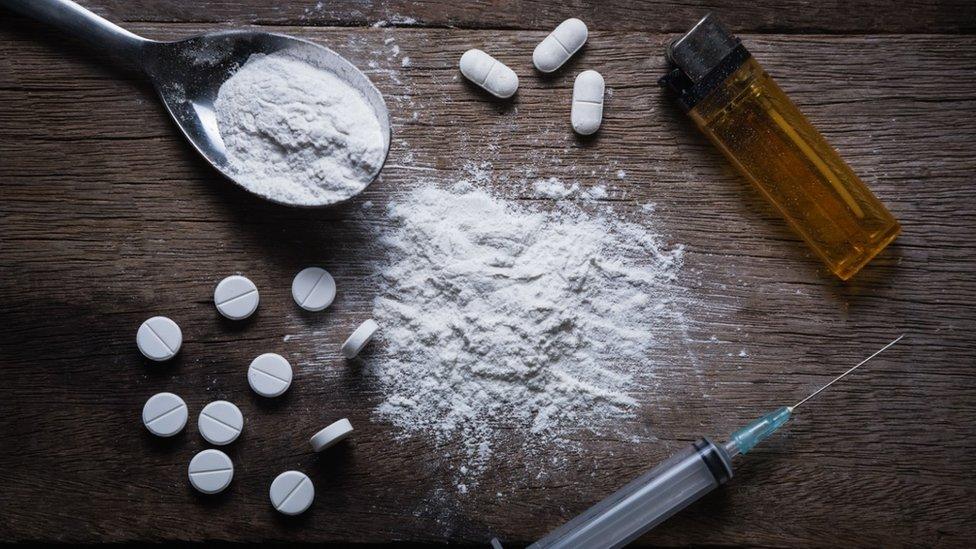Overdose prevention scheme offers users shopping vouchers
- Published
Drug users are being given shopping vouchers during training for an overdose prevention drug
Drug users in Fife are being given shopping vouchers in exchange for training in the use of overdose prevention drug naloxone.
The scheme also sees users take tests for blood-borne viruses while using the £20 vouchers as an incentive.
A charity hopes it will encourage regular visits by users every three months.
It comes as Scotland's drug death rate remains the highest of any country in Europe.
Naloxone is a nasal spray which can reverse the effects of an opioid overdose.
In addition to paramedics, police officers and families affected by drugs, the treatment is available to groups including health clinics and drugs and alcohol services.
Danielle Wong, who works for the harm reduction charity With You which is running the naloxone project, said: "It's just to encourage them [drug users] to keep showing up to get the tests.
"It's a £20 voucher but it can't be used at off-licences. It is a Love2Shop voucher, so they can get clothes and food and things like that.
"There are a lot of times where we can get a first couple of tests off someone.
"But to have someone turn up every three months and maintain getting those tests can sometimes be a bit much to ask."
The service is run from an outreach van visiting towns in Fife on weekdays.
The vouchers work in numerous stores including Iceland, M&S and Boots.
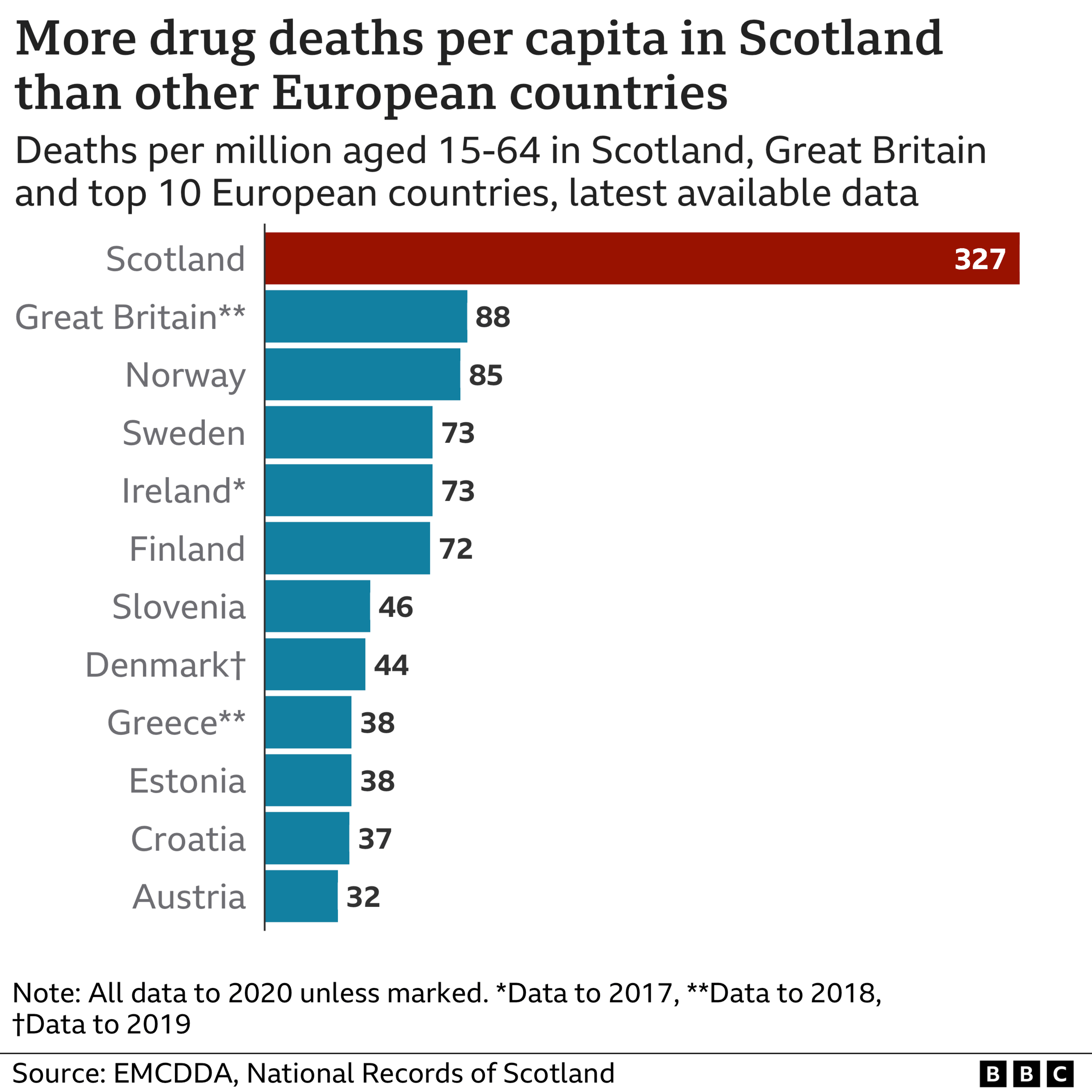
In line with the rest of Scotland, Fife has seen rising overdose deaths in recent years. In 2021, there were 70 deaths - double the number a decade earlier.
BBC Scotland visited the van as staff met drug users in the Templehall area of Kirkcaldy.
Local people using drugs were interviewed by Danielle Wong and others about their addiction before being given information on harm reduction.
One user named David also provided blood samples to test for viruses.
"There's a high prevalence of drug use in Templehall," project worker Derek Percival told the BBC.
"That's for various reasons. Deprivation would be the main reason I would point to."

'I've got my head up and I feel like a much better person'
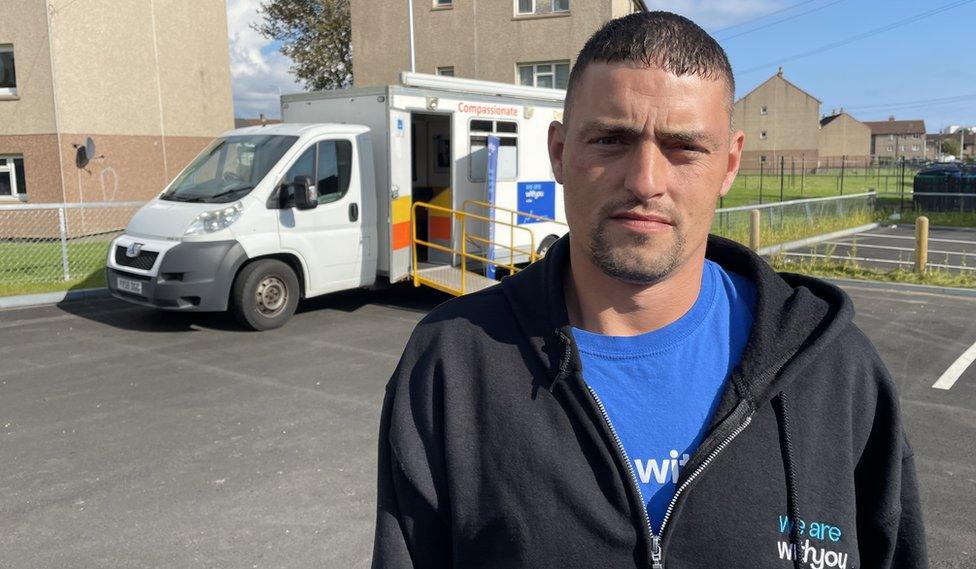
Brian Moore has been drug-free for four months and is now employed by the With You charity
The With You outreach van is staffed by charity workers as well as local people who are in recovery.
Brian Moore, 38, has been drug-free for four months after a stint in rehab and is now employed by the charity.
His work sees him offering users clean injecting equipment, naloxone and peer support.
He said he feels he is doing more for his community.
"I used to walk about with my head to the ground and didn't concentrate on anybody or speak to anyone," he said.
"Now I've got my head up and explaining to people what I do. I feel like a much better person."
'I'm tired of the drugs lifestyle'
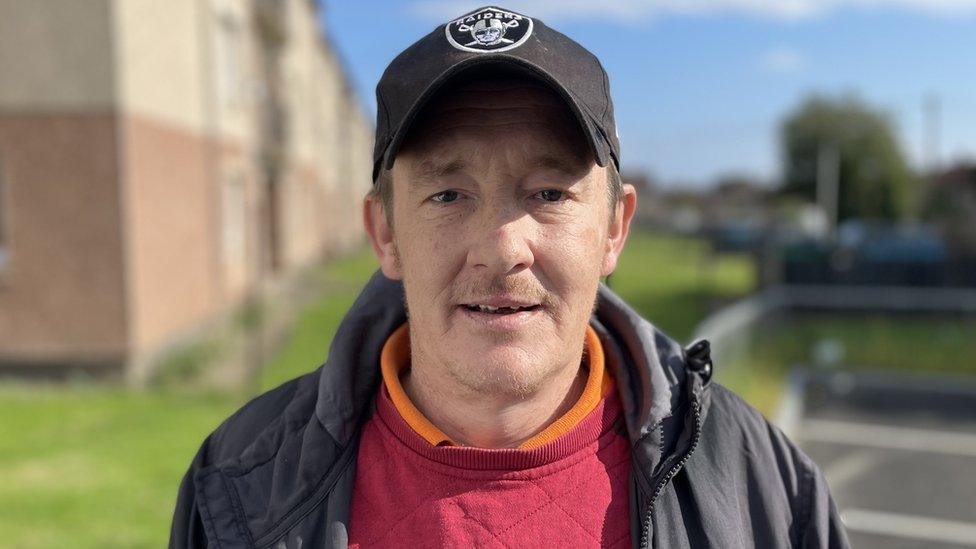
Kevin Whittaker said he was "tired of the lifestyle" of taking drugs
One of the voucher recipients is Kevin Whittaker, 44. He's been using class-A drugs since his late 30s.
He said: "I'll see what shop I'm passing at the time and see what I can get with the money. It's £20 for nothing."
The former salesman said he was "tired of the lifestyle" of taking drugs.
"It's getting me nowhere and it's causing me problems," he said. "Nobody likes getting up in the morning and wondering where the next £20 is coming from.
"It's just a constant chase."

Reform of drug laws
In 2021, Scotland recorded its second-highest number of drug-related deaths since records began. A total of 1,330 died from overdoses.
Scotland's drug misuse rate remains at about 3.7 times higher than for the UK as a whole.
National Records for Scotland statistics, external showed that of those who died, 65% were aged between 35 and 54 and more than two- thirds (70%) were men - a total of 933.
Drug-related deaths among women increased by 8.5% to 397 in 2021 - a record high in this group.
People in the most deprived areas were 15 times more likely to have died from drugs than those in the least deprived areas.
The head of Scotland's drug deaths taskforce called for an overhaul of addiction services and reform of drugs laws to halt overdose deaths.
David Strang - a former chief inspector of prisons and ex-chief constable of Lothian and Borders Police - echoed earlier calls for a "public health approach" to the crisis.
Last year, the Scottish government pledged an extra £250m over five years in an attempt to reduce the number of deaths, including £20m a year on increasing the number of residential rehabilitation beds across the country.
Opposition parties insist cuts to drug rehab and addiction programmes by the Scottish government have been a major reason for increased drug deaths in recent years.
- Published28 July 2022
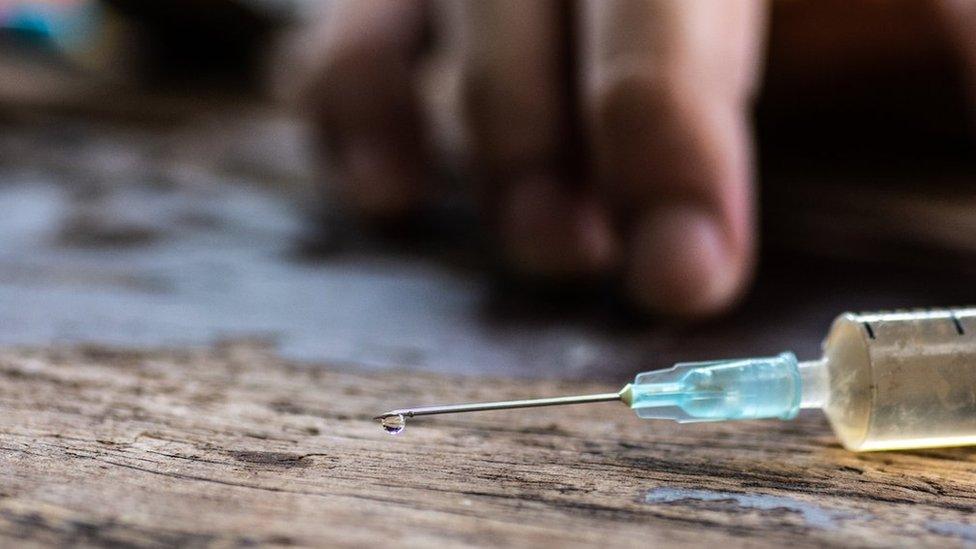
- Published28 July 2022
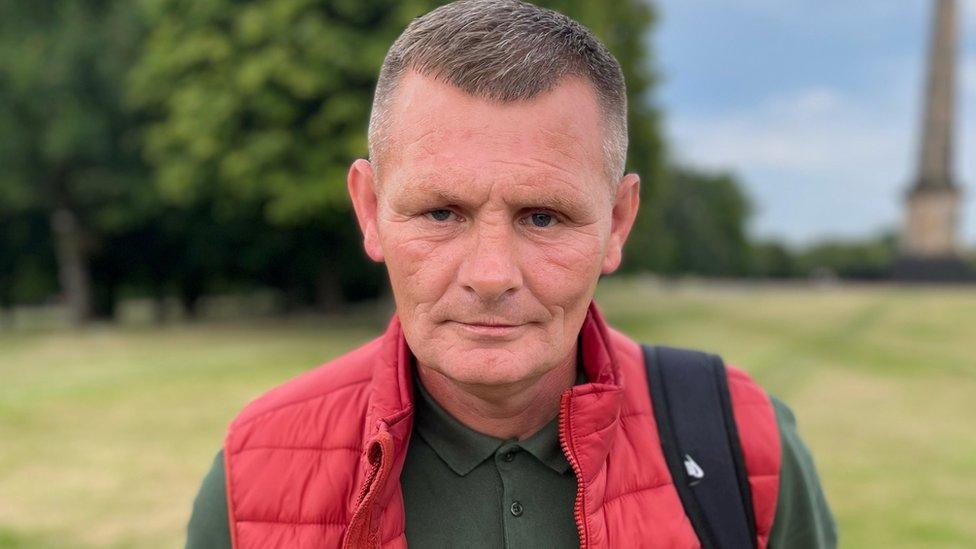
- Published21 July 2022

- Published20 January 2021
